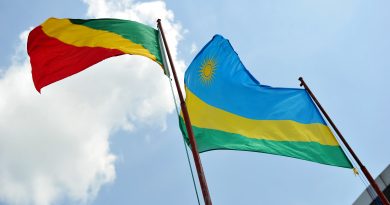Peaceful Elections in Guinea, Ivory Coast Exceed Expectations
By Oumarou Kouraogo
Staff Writer
In October, contentious elections in the African nations of Guinea and the Ivory Coast captured the world’s attention. On October 11, Guinea held their second democratic presidential election since declaring independence from France in 1958.
The elections were marked by deadly clashes as opposition leader Dalein Diallo warned, ahead of the vote, that he would contest the results.
After Guinea’s electoral commission declared that incumbent President Alpha Conde had won around 58 percent of the vote, Diallo said he did not recognize the result and would call on his supporters to protest against fraud and vote-rigging, as reported by Al Jazeera. Diallo suspected the electoral commission and the government of manipulative acts, including “ballot stuffing, allowing minors to vote, changing the electoral map and intimidation.”
Though Diallo called for the protest to be peaceful and organized, fear of escalation and violence was felt both nationally and around the world.
Corine Dufka, West Africa director at Human Right Watch, stressed the need for “political parties to ensure restraint by their members, and Guinean security forces [to] apply discipline, minimum force, and neutrality at all times when responding to post-election violence.”
Additionally, the International Criminal Court Prosecutor Fatou Bensouda stated that her “office has been closely following development in the situation in Guinea,” and “reiterated that anyone who commits, orders incites, encourages or contributes in any way to the commission of atrocity crimes falling the jurisdiction of the ICC is liable to prosecution either in Guinea or at the court in the Hague.”
There is no data to assess the extent to which warnings from these international organizations have had on the progress of the post-electoral situation. However, there have been no major incidents reported as of early November.
In the Ivory Coast, the presidential elections held on October 25 resulted in the re-election of Alassane Dramane Ouattara, the incumbent since 2011. Ouattara won his second five-year term with approximately 84 percent of the vote.
Ouattara’s first term came after a controversial two-round election held in October through November 2010. These elections resulted in a deadly civil war, which saw the death of nearly 3,000 people and the displacement of around 500,000.
The October 25 election was judged transparent by several observers. Al Jazeera reports that many political observers predicted Ouattara’s victory due to his success in rebuilding the economy after the civil war. A recent report from BBC News indicates that the Ivorian economy has boomed in recent years due largely to the export of cocoa and cashew nuts.
While President Ouattara has been praised for transforming the economy and returning Ivory Coast to economic stability unseen since the 1970s, he has also been criticized for not doing enough for reconciliation and justice, according to BBC News.
Judging from past elections, the elections in Guinea and Ivory Coast were expected to result in conflict. In this case, the fear outweighed the hurt. As BBC News reports, “After two civil wars, most of the country will simply be happy these elections passed by peacefully.”

